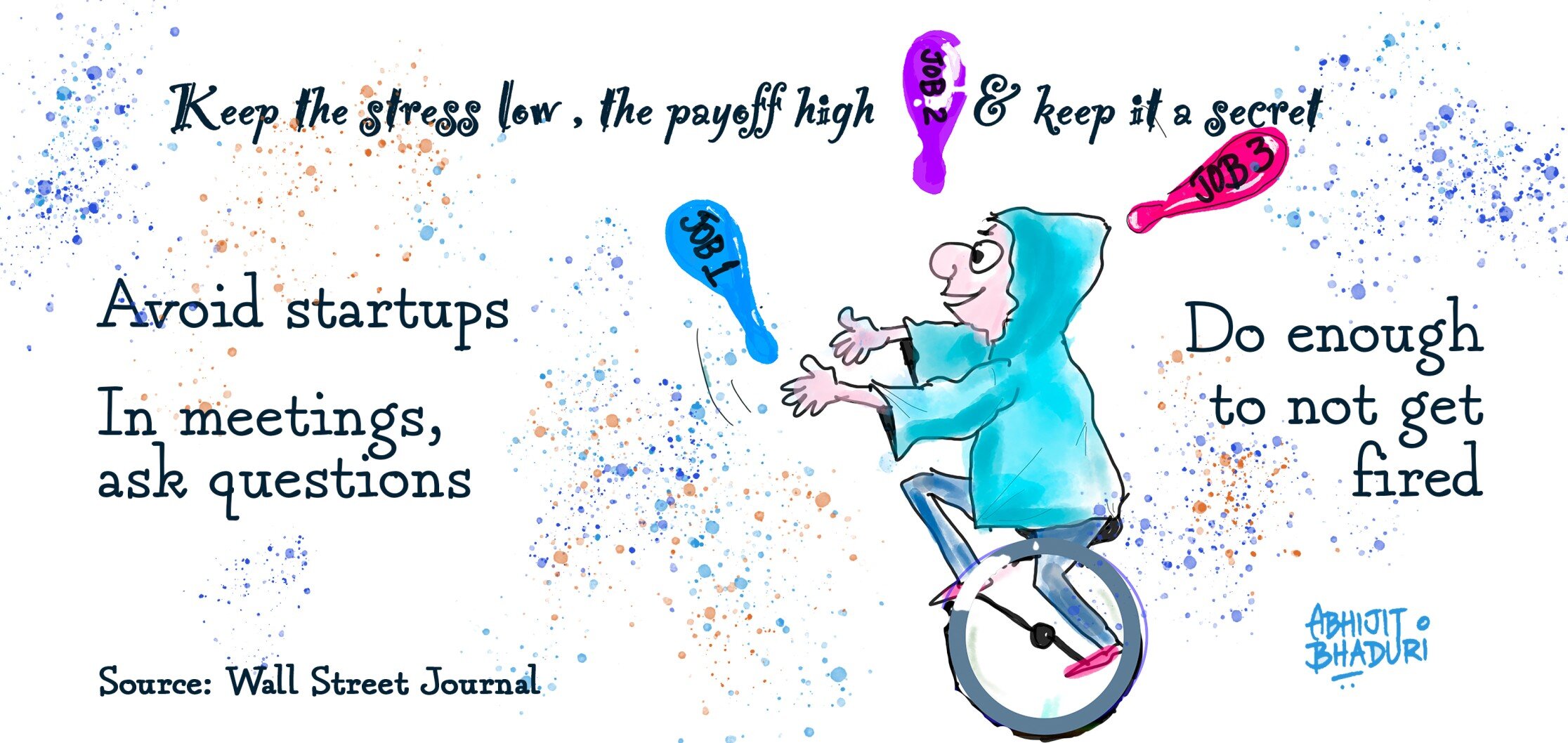Five Reasons Why People Find Second Jobs
Most jobs come with no guarantee. If employees hold a second job or a third, is it unfair?
How to get more than one pay-cheque
Sometime back, this post caused a flutter on the internet. Someone claimed to be doing ten "fully remote engineering jobs".
With 41% looking for jobs, employers are looking to fill up jobs in a hurry. In a fully remote and fast-paced environment it is hard to supervise the team in the traditional way. The term used is "over-employment". How do people manage it? <read: The Great Resignation">
<Read this or see my sketchnote below for key take aways>
Why people take up a side hustle
Some jobs do not pay enough: Composer Philip Sheppard shocked a room full of listeners when he said that the lead trumpet player of an upcoming James Bond movie also delivers packages for Amazon. Teachers supplement their salaries through private tuitions.
Managing financial risk: In 2020, 81 million jobs were lost due to the pandemic. Employees can be laid off with very little warning leaving the employees and their families on the brink of poverty. A second job or a side gig is an insurance policy. Some tech workers have to take a salary drop to be able to work from a location of their choice. They make up the difference with their second or third 'jobs'.
The main job is not inspiring enough: For many people, the day job they have been forced to continue is uninspiring. The side job provides them the meaning that the main job does not. The second job can simply be a way to find meaning. A popular novelist started off as a banker having done his MBA from a top-notch B-School. When his first book became a runaway success he switched to becoming a full time writer.
Employers do it all the time: "When my company sends projects to India it is called outsourcing. I outsource my designs done to designers in low wage countries. They get paid more than their local rates. I get to work with the best.", says a designer. Some view the side-gig as a way to find fulfilment, "I have terrific ideas which my company never uses. Now I am being paid to brainstorm with the biggest firms across the world."
Read: Why WFH makes it easy for people to have 2 jobs
5. Common practice in many professions: A well-known composer was not given the Oscar because he could not prove that the music for the film was created by him. He is known to use many struggling musicians to create the score and then buys the rights to the music. Some "prolific authors" use ghost writers to churn out novels.
It is not just about a pay-cheque
The second can be a powerful way for people to build skills without the employer having to send them off to a training program. Some organisations reward entrepreneurial employees by adding them to the firm's list of vendors when the second gig is big enough. It is done in a transparent manner by both. Some employers take a stake in the startup.
We are living in a world of "portfolio careers". As soon as an employee finds that they are able to do 60% of the job effortlessly, it is time to think of a side gig that can engage the employee. Building a portfolio in-house may be good to build cross-functional perspective in the employees. Building it through a side hustle unknown to the employer is a close second.
If you have done side gigs, I would love to know what you think about legitimising multiple interests. Leave your comments below.
If you like this newsletter, do let me know by liking it and adding your comments and sharing it on your page.
H/T: @Estelle Metayer and the speakers for her Clubhouse session called Trends & Weak Signals on 21 Aug 2021









